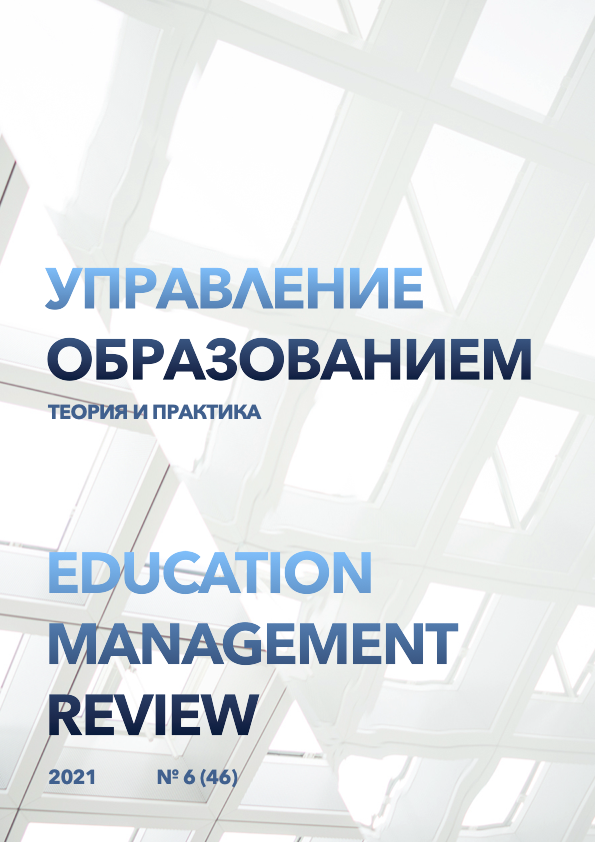Формирование принципов обучения в исламских странах
DOI:
https://doi.org/10.25726/h8240-0564-7801-oКлючевые слова:
географическое образование, исследования, система образования, особенности, программыАннотация
Образовательные программы и учебные пособия каждой страны Арабского мира разработаны с учётом национальных, этнических, религиозных, исторических, географических, политических, социально-экономических и других особенностей. Однако вследствие внедрения инновационных технологий в образование и развития сети интернет образовательные системы разных стран нуждаются в модернизации. Таким образом, в современном мире происходит становление глобальной системы образования, в которую интегрируются национальные образовательные системы. Географическое образование в Сирии и других арабских странах, в частности в Арабской Республике Египет и Королевстве Саудовская Аравия, которые были выбраны для сравнительного анализа, как одни из передовых стран по уровню образования, имеет положительный опыт глубокого изучения географии родной страны, воспитания гражданственности и патриотизма, развития у школьников практических умений, необходимых в жизненных ситуациях. Вместе с тем проблемы школьного географического образования в Сирии были объектом только одного исследования, которое проводилось больше четверти века назад. Отсутствие кандидатских и докторских диссертаций, посвящённых развитию школьного географического образования Египта и Саудовской Аравии, также свидетельствуют о недостаточной изученности проблемы.
Библиографические ссылки
Anisimova, A. N., & Efremova, Y. I. (2022). Digital Transformation of Vocational Education: Challenges of Modern Society. Lecture Notes in Networks and Systems, 304, 773–781. https://doi.org/10.1007/978-3-030-83175-2_95
Breckel, A., Pietron, J., Juhnke, K., Sihler, F., & Tichy, M. (2022). A domain-specific language for modeling and analyzing solution spaces for technology roadmapping. Journal of Systems and Software, 184. https://doi.org/10.1016/j.jss.2021.111094
De La Peña, L., Guo, R., Cao, X., Ni, X., & Zhang, W. (2022). Accelerating the energy transition to achieve carbon neutrality. Resources, Conservation and Recycling, 177. https://doi.org/10.1016/j.resconrec.2021.105957
Ferreira, H. M., Afonso, C. W., da Costa Leonídio, U., & Pinto, A. S. (2022). Characteristics of Remote Education in a Time of Pandemic: An Analysis of Transformative Teaching Practices in a Higher Education Institution. Smart Innovation, Systems and Technologies, 256, 833–840. https://doi.org/10.1007/978-981-16-5063-5_68
Ferreira, S., Campos, C., Marinho, B., Rocha, S., Fonseca-Pedrero, E., & Barbosa Rocha, N. (2022). What drives beliefs in COVID-19 conspiracy theories? The role of psychotic-like experiences and confinement-related factors. Social Science and Medicine, 292. https://doi.org/10.1016/j.socscimed.2021.114611
Gryaznov, S. A. (2022). How Digital Technologies Are Changing Business Education. Lecture Notes in Networks and Systems, 304, 801–807. https://doi.org/10.1007/978-3-030-83175-2_98
Kokhan, S., Vlasava, S., Eshiev, A., Musabayeva, K., & Anarbaeva, G. (2022). Learning Path of Distance Education in Regional Universities: Challenges and Opportunities. Lecture Notes in Networks and Systems, 247, 341–355. https://doi.org/10.1007/978-3-030-80946-1_34
Kozhukhova, N. V, Agaphonov, I. A., & Korobkova, Y. Y. (2022). Competencies of the Future: Transforming Education in the Digital Economy. Lecture Notes in Networks and Systems, 304, 839–848. https://doi.org/10.1007/978-3-030-83175-2_102
Lixia, W., Xiaoming, X., Lei, S., Su, H., Wo, W., Xin, F., … Li, K. (2022). A cross-sectional study of the psychological status of 33,706 hospital workers at the late stage of the COVID-19 outbreak. Journal of Affective Disorders, 297, 156–168. https://doi.org/10.1016/j.jad.2021.10.013
Loturco, I., Freitas, T. T., Alcaraz, P. E., Kobal, R., Hartmann Nunes, R. F., Weldon, A., & Pereira, L. A. (2022). Practices of strength and conditioning coaches in Brazilian elite soccer. Biology of Sport, 39(3), 779–791. https://doi.org/10.5114/biolsport.2022.108703
McDonald, A. R., Roberts, R., Koeppe, J. R., & Hall, B. L. (2022). Undergraduate structural biology education: A shift from users to developers of computation and simulation tools. Current Opinion in Structural Biology, 72, 39–45. https://doi.org/10.1016/j.sbi.2021.07.012
Merl, C. (2022). Lab 21 – A Space for Learning, Sharing and Innovating. Lecture Notes in Networks and Systems, 349 LNNS, 199–211. https://doi.org/10.1007/978-3-030-90677-1_20
Mwanza, B. G., & Mbohwa, C. (2022). Policy Makers Responsibilities. SpringerBriefs in Applied Sciences and Technology, 77–80. https://doi.org/10.1007/978-3-030-88644-8_6
Pinevich, E., Mekhantseva, K., Volokhov, A., & Gargatsova, S. (2022). Matrix Thinking in the Fractal Digitalization of Education. Lecture Notes in Networks and Systems, 247, 517–528. https://doi.org/10.1007/978-3-030-80946-1_49
Zúñiga-Arrieta, S., & Camacho-Calvo, S. (2022). Theoretical references for an accreditation model from evaluation and quality management [Referentes teóricos para un modelo de acreditación desde la evaluación y la gestión de la calidad]. Revista Electronica Educare, 26(1). https://doi.org/10.15359/ree.26-1.15




